Dean Willie Reed Boldly Pursues Fundamental Improvements to the College of Veterinary Medicine and the Veterinary Medical Profession
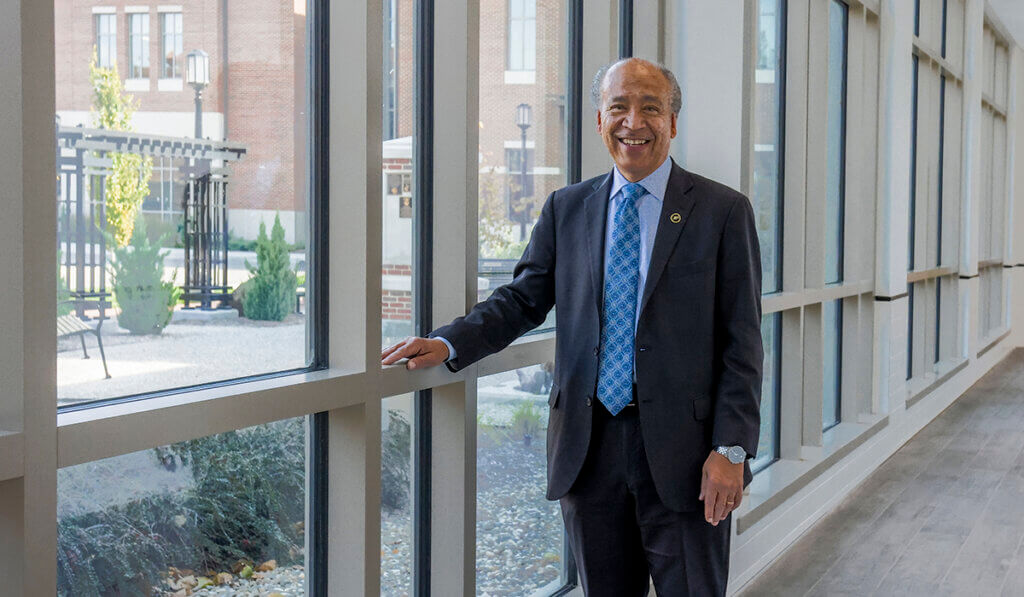
It all started as a dream. That’s how the story begins — a story that Dr. Willie Reed, dean of the Purdue University College of Veterinary Medicine loves to share, especially with students. It’s the story of how he persistently pursued a goal that seemed almost unimaginable as he was growing up in Alabama in the early days of desegregation in the deep south. Given the dangers that faced a black schoolboy at the time, he spent his first-grade year at home, learning from a very special, loving teacher — his grandma. As tensions eased he was able to continue his education in the school system.
By high school graduation, he recognized that his career interests aligned with the work of a veterinarian. But in his small community, he saw no one in veterinary medicine who looked like him. Black veterinarians were few in number nationally, and non-existent in his community in Alabama.
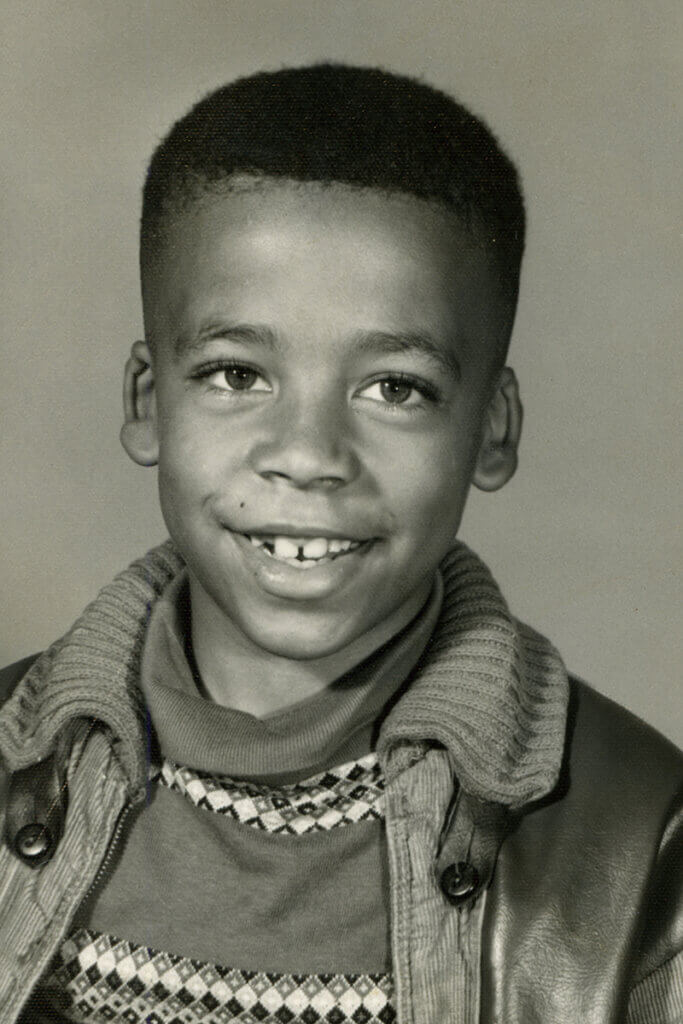
Undaunted, he set his mind on his giant leap — becoming a Doctor of Veterinary Medicine. He found a welcoming environment for his college education in his home state at Tuskegee University (then called the Tuskegee Institute). With strong support from his hometown, he earned his bachelor’s degree in animal and poultry science and, in 1978, his DVM degree, graduating from both degree programs with high honors. Then his pathway turned toward Purdue University. Guided by his interest in graduate study, Dr. Reed came north with his wife, Dorothy, to check out opportunities at Purdue. When he set foot on the grounds of what was then called the School of Veterinary Medicine, and met faculty, staff, and students, it felt like a family — a place where people cared about each other and shared a commitment to excellence.
He also recognized that the school had what he was looking for in a graduate degree program. Dr. Reed pursued a PhD in pathology, which he earned in 1982. He then joined the faculty as assistant professor of veterinary pathology and served as a diagnostician in the Animal Disease Diagnostic Laboratory (ADDL). When the ADDL found itself in need of an avian pathologist, the director came to Dr. Reed and asked him to take on the responsibility. Knowing that a significant challenge is the flip side of a significant opportunity, he accepted and later became chief of the Avian Diseases Diagnostic Service as his next giant leap. A diplomate of the American College of Veterinary Pathologists, Dr. Reed served eight years on the faculty and during that time was promoted to associate professor of avian pathology and named as assistant director of the ADDL.
Dr. Reed’s next opportunity came in 1990 when Michigan State University recruited him to join their faculty as a full professor and serve as the new director of the Animal Health Diagnostic Laboratory (now called the Veterinary Diagnostic Laboratory). Soon after, he became a charter diplomate of the American College of Poultry Veterinarians and later also was named as the chairperson of MSU’s Department of Pathobiology and Diagnostic Investigation.
Another giant leap awaited Dr. Reed though. Purdue resurfaced on his radar screen when the School of Veterinary Medicine needed a new dean. The announcement that Dr. Reed had been chosen for that role by the Purdue University Board of Trustees came in 2006, with his appointment effective in January 2007.
The new position seemed just the right fit for an accomplished veterinarian with extensive experience in academia and a history of facing and overcoming seemingly insurmountable challenges to become the veterinarian he had dreamed about as a young man. He possessed strong leadership skills as well as the perspective and experience that enabled him to understand and champion the need for and benefits of increasing diversity in veterinary medicine.
Dean Reed didn’t wait to begin the effort to foster an environment characterized by diversity, equity, and inclusion that would complement the college’s longstanding and highly respected commitment to excellence in veterinary education, research, and service. So he moved quickly to establish two new offices — the Office of Engagement and the Office for Diversity, Equity, and Inclusion. One focuses on the college’s scholarly engagement efforts that provide service and knowledge impacting the global society. The other works to cultivate an enriching professional experience through education and inclusive excellence, with the goal of modeling innovative practices that introduce diversity into the systems, structure, and culture of the college.
Dean Reed saw these two offices as key elements of a holistic approach to making a measurable, positive impact on diversity, equity, and inclusion in the college and across the veterinary medical profession. His vision was borne out by the establishment of innovative and impactful programs and practices. Educational and outreach initiatives reached into early grades in schools to spawn interest and excitement in science and especially veterinary medicine, particularly amongst children from disadvantaged backgrounds. Certificate programs, scholarship initiatives, and on-campus learning experiences seeded success for applicants from diverse backgrounds pursuing a veterinary career, and equipped students, staff, and faculty to achieve excellence in fostering a welcoming and diverse college community.
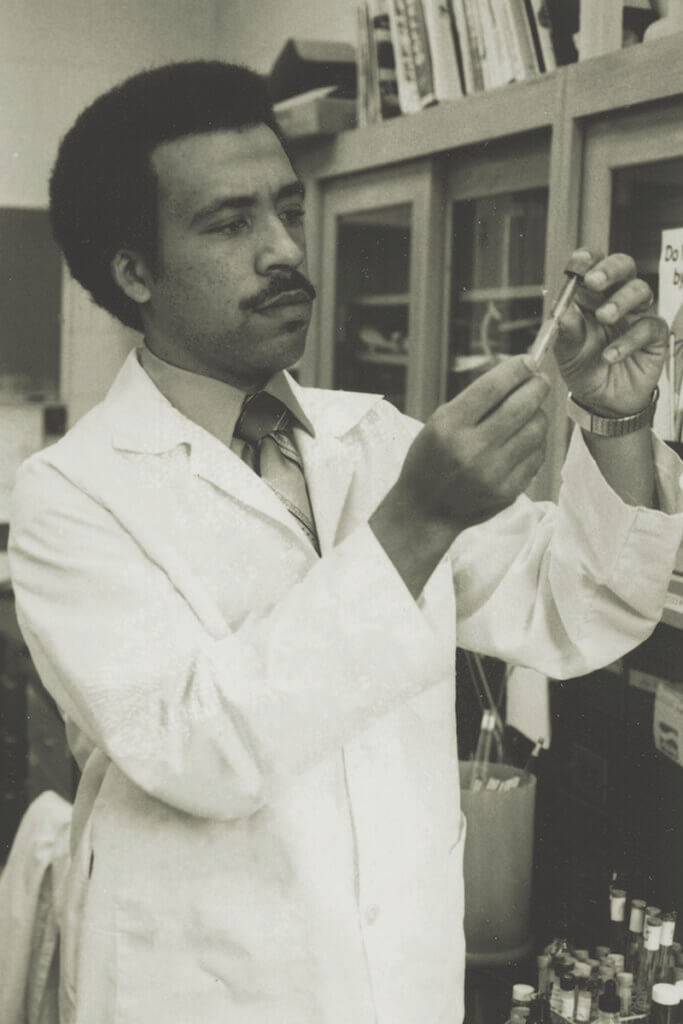
As the dean’s vision played out over the years, the resulting impact was measurable, admirable, and heartwarming. The achievements were reflected in a major tribute that came in 2023 when the American Veterinary Medical Association (AVMA) chose Dean Reed as the inaugural recipient of a new national award — the AVMA Frederick Douglass Patterson Lifetime Achievement Award, which recognizes an AVMA member veterinarian for lifetime contributions to the veterinary profession through innovative and transformative leadership in promoting diversity, equity, and inclusion.
This outstanding recognition came on top of a stellar record of leadership across all of the college’s missions of learning, discovery, and engagement. A key reason for Dean Reed’s success involved his understanding of the importance of strategic planning. When he started as dean, he initiated the process of creating a new five year strategic plan for the college — the first of three such plans, which have guided the college all the way through 2023. “This strategic planning process helped us identify and persistently pursue key goals. We identified top priorities for research, education, and the delivery of top notch veterinary services,” Dean Reed said.
The most recent monument to Dean Reed’s leadership and influence is the recently completed $108 million David and Bonnie Brunner Purdue Veterinary Medical Hospital Complex that contains an expansion of the Small Animal Hospital and new Equine and Farm Animal Hospitals that replaced the old Large Animal Hospital. “With this stunning new resource, we have been able to grow our hospital services, enhance clinical education for our students, deliver top-quality veterinary medical care to animal patients, and advance veterinary and comparative medical research through clinical trials,” Dean Reed explained.
The new David and Bonnie Brunner Equine Hospital actually represents the college’s second equine hospital facility. The first opened in 2017 in Shelbyville, Indiana as a satellite facility now named the Caesar’s Entertainment Equine Specialty Hospital. Though both facilities feature outstanding equine health expertise and state-of-the-art equipment, the specialty hospital in Shelbyville, located in proximity to Indiana’s two race tracks, is especially suited to treat cases involving performance horses.
Perhaps most important, however, is how the college has enhanced the quality and effectiveness of the veterinary education provided to Purdue DVM and veterinary nursing students, thereby giving them the best possible preparation for their veterinary careers. The changes include fresh approaches to effective clinical skills training, innovative use of new technology, and continued emphasis on educating all members of the veterinary team, which the college is especially capable of doing with the combination of its DVM and Veterinary Nursing degree programs.
Another vital aspect of the college’s accomplishments involves research programs and the growth of external research support for scientific discovery that advances medicine for the benefit of both animals and humans — support that reached a record level of funding in 2023. Dean Reed’s other achievements at Purdue have included enhancement of teaching, clinical, and research facilities in Lynn Hall, expansion of the DVM class size by 20%, recruitment of faculty members in multiple specialty areas from across the globe, and significant growth in the college’s global engagement programs through increased student participation in international learning experiences, and added study abroad opportunities and international exchange relationships with veterinary colleges in other countries.
“Success is measured not so much by the positions that one has reached in life, as by the obstacles that he has overcome while trying to succeed.”
Dr. Booker T. Washington, founder and first president of Tuskegee University
As the college has carried out its strategic plans and built a strong record of accomplishment, Dean Reed has continued looking ahead. Just as the long-sought plans for completion of new hospital facilities were coming together, he began working with a facilities planning team to create a master plan for an expanded and upgraded veterinary medical complex in the future. The plan took stock of all of the College of Veterinary Medicine’s existing buildings and acreage and linked priority needs with potential opportunities to renovate or rebuild existing structures and build new facilities. The master plan provides the footprint for future changes to meet the growing need for expanded and enhanced educational and research space.
In the midst of his forward-looking efforts, Dean Reed also has stewarded a strong appreciation for the college’s history and the importance of major milestones. Recognizing that the college had been founded in the late 1950s, Dean Reed knew at the time of his appointment in 2007 that a very significant anniversary was approaching. Given that the first class of Purdue veterinary students enrolled in 1959, he put the wheels in motion for a grand 50th anniversary celebration in 2009. And grand it was, with a year-long calendar of special programs and events, including a kick-off celebration at the Indiana Veterinary Medical Association annual meeting in February in Indianapolis, a Derby Day held at Horseshoe Indianapolis (then known as Indiana Downs) in May, a Dog Days of Summer community art project held as a joint effort and fundraiser for the college and the Art Museum of Greater Lafayette, and a grand gala that concluded the anniversary during the college’s annual Purdue Veterinary Conference.
“These are our accomplishments, as members of the Purdue Veterinary Medicine community. As we celebrate them, I want to emphasize that they are possible because of the continued support of loyal Boilermakers, including our alumni and friends,” said Dean Reed. “Since 2007, we’ve raised just shy of $165 million, nearly half of which was committed in the last three years. These resources have supported the new hospital facilities, named two significant centers for oncology and equine research, and expanded our scholarship funding to not only recruit excellent students, but decrease their financial burden and the related stress.”
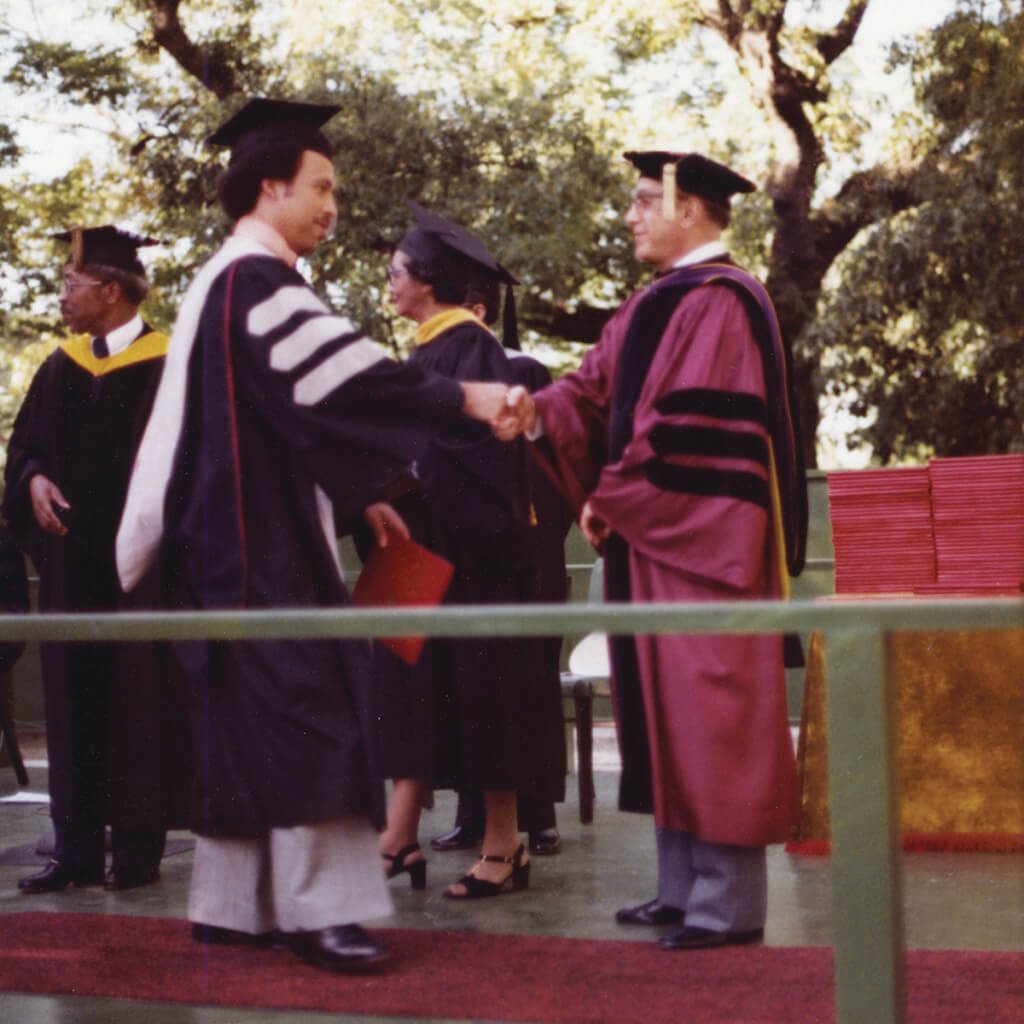
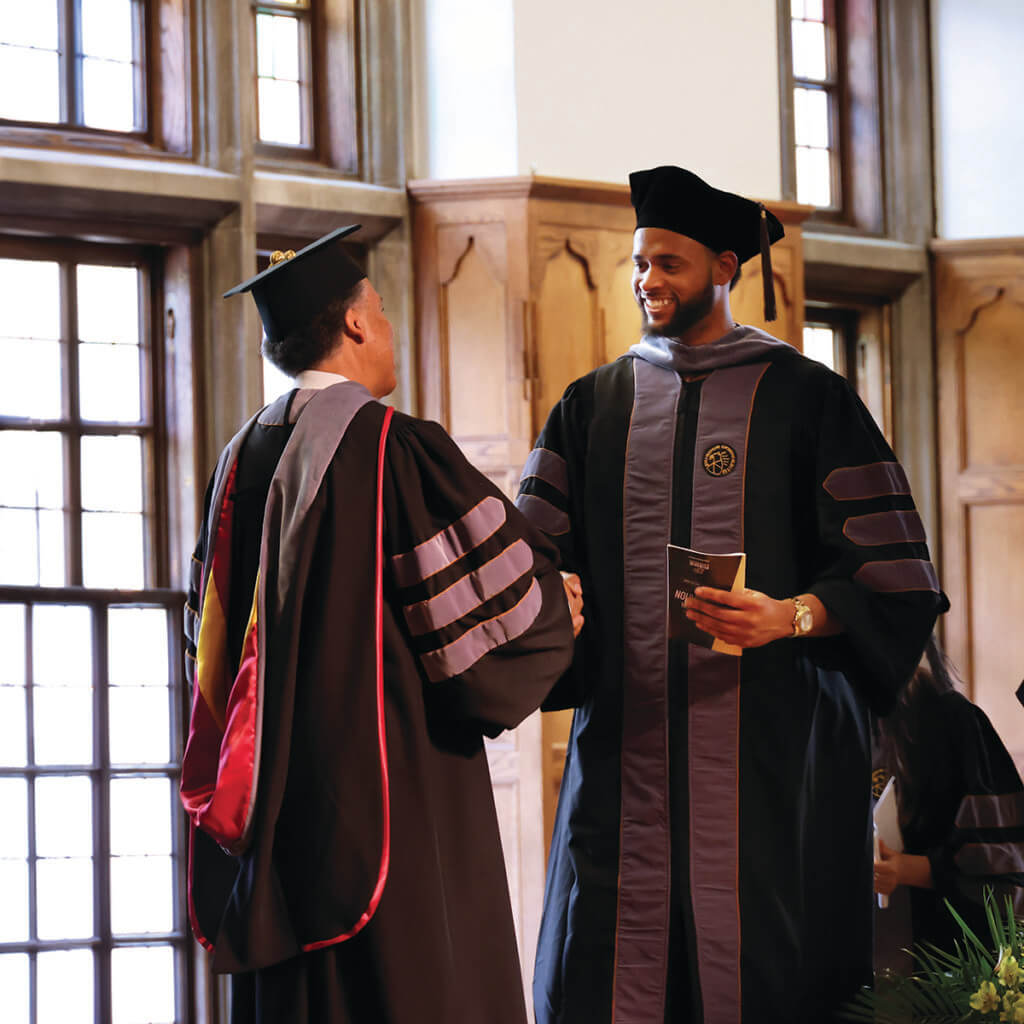
There’s a lot to celebrate indeed. But Dean Reed never advocates resting on laurels. “We still have a lot of work to do!” Ever mindful of what’s needed for the college to accomplish its next giant leap, Dean Reed is always looking forward, whether it’s to ensure that the college has funding for competitive packages to recruit and retain top talent, or to continue acquiring the sophisticated high-tech equipment needed to maximize the benefit of the new hospital facilities, or to renovate classrooms and laboratories to accommodate expanded class sizes.
As Dean Reed reflects on all that has happened since he stepped into the Purdue Veterinary Medicine deanship, he remembers the words of a prominent figure in U.S. history and a prominent role model in his own life. That person is Dr. Booker T. Washington, founder and first president of Tuskegee University, who said, “Success is measured not so much by the positions that one has reached in life, as by the obstacles that he has overcome while trying to succeed.” Dean Reed says those guiding words have helped him to always be thankful for the people who have encouraged and mentored him throughout his life, and the opportunities he has had as a result.

